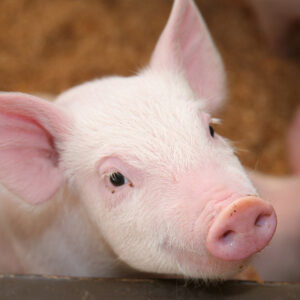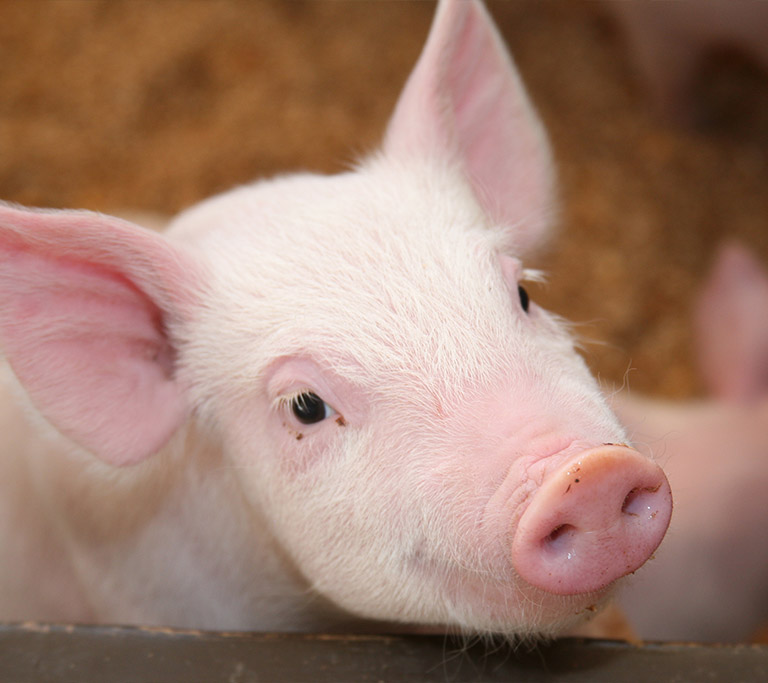


VestAmino® Lys
Lysine HCl
Lysine HCl (L-lysine hydrochloride) and L-Lysine sulphate are commonly used sources of supplemental lysine in pig diets. Here’s an overview of their roles and the benefits of using L-Lysine HCl and L-Lysine sulphate in pig diets:
- Essential amino acid supplementation: Lysine is an essential amino acid that is often the limiting amino acid in pig diets. L-Lysine HCl and L-Lysine sulphate are highly concentrated sources of lysine, allowing for precise supplementation to meet the pig’s lysine requirements. Supplementing with these forms of lysine ensures that pigs receive sufficient levels of this essential amino acid for optimal growth and performance.
- Protein synthesis and growth: Lysine is critical for protein synthesis, supporting the production of muscle tissue and other proteins in the pig’s body. By supplementing with L-Lysine HCl or L-Lysine sulphate, the availability of lysine is increased, leading to improved protein synthesis, enhanced growth rates, and better feed efficiency in pigs.
- Lean muscle development: Lysine plays a significant role in promoting lean muscle development in pigs. It supports the growth of muscle fibres and the deposition of high-quality lean meat. Adequate lysine levels, achieved through L-Lysine HCl or L-Lysine sulphate supplementation, help optimize lean muscle growth and improve carcass composition.
- Nutrient utilization and reduced environmental impact: Supplementing with lysine sources such as L-Lysine HCl or L-Lysine sulphate improves the utilization of dietary protein and nitrogen in pigs. This leads to more efficient nutrient utilization and reduced nitrogen excretion in manure, benefiting the environment and overall nutrient utilization by the pig.
- Feed formulation flexibility: Using L-Lysine HCl or L-Lysine sulphate provides flexibility in diet formulation. Since lysine is often the limiting amino acid, supplementing with these sources allows for precise balancing of the amino acid profile in the diet. This enables nutritionists to formulate diets that more closely meet the pig’s lysine requirements, resulting in improved performance.
It’s important to note that L-Lysine HCl and L-Lysine sulphate are both effective sources of lysine for pigs, but there may be slight differences in their composition and cost. Nutritionists and producers should consider availability, cost, and formulation considerations when selecting the appropriate source for their needs. Supplementing pig diets with L-Lysine HCl or L-Lysine sulphate helps address lysine deficiency, ensuring optimal protein synthesis, growth, and lean muscle development. It improves nutrient utilization, reduces environmental impact, and provides flexibility in diet formulation for achieving optimal lysine balance. These sources of lysine play a vital role in pig nutrition, contributing to improved performance and overall health.




